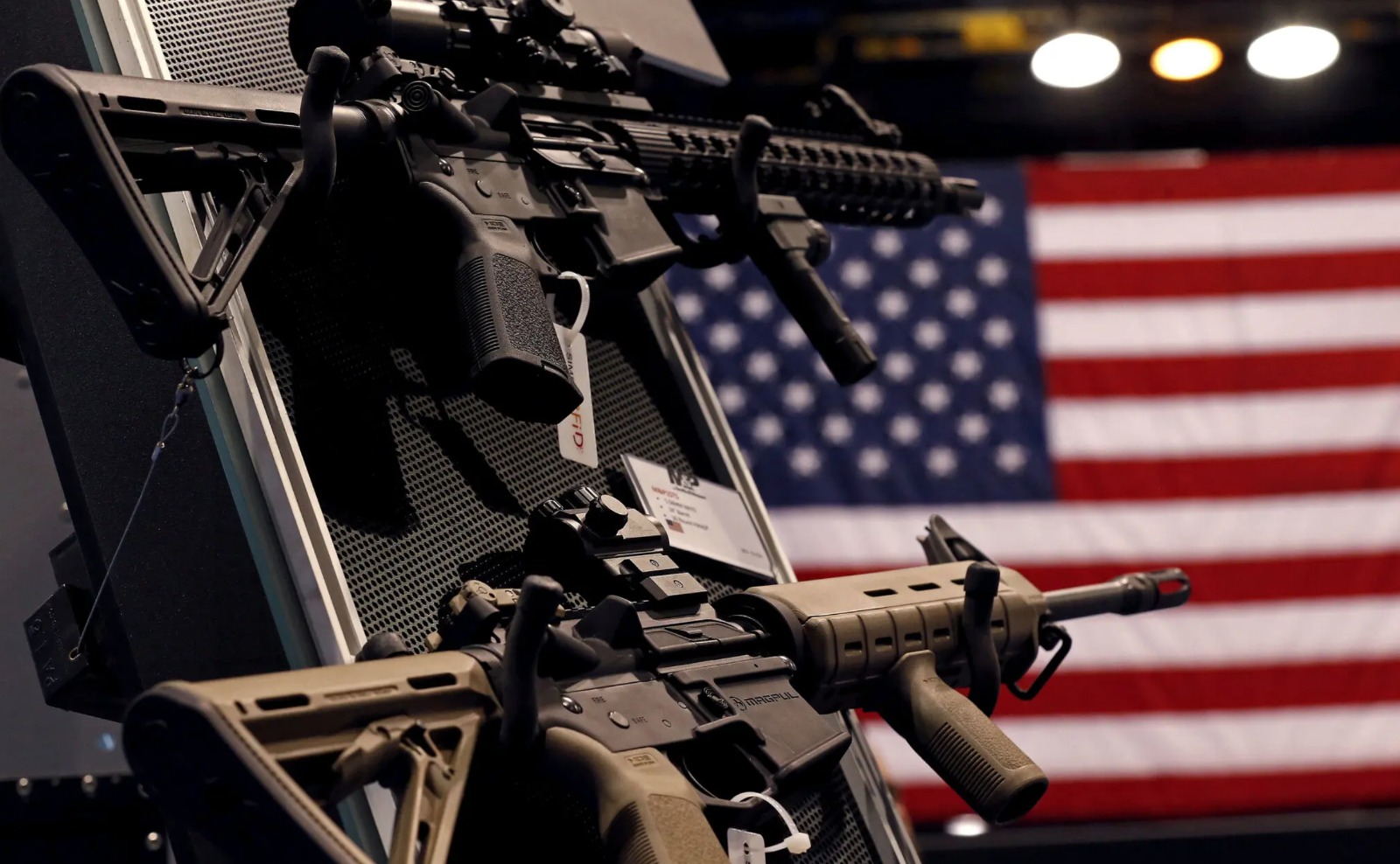U.S. Congresswoman Katie Porter asks to speak during the Oversight and Investigations Committee session on July 27. She then turns on her cell phone. She shows the audience how to activate a security setting to gain access: fingerprint scanning. “Why does it take more steps to activate my phone than your company’s firearm?”, she asks the CEO of a gun company who is virtually attending the session. In the United States, the purchase and bearing of arms is a constitutionally recognized right (second amendment) but this regulation affects more countries besides the United States. On August 4, 2021, the Government of Mexico filed a lawsuit against 11 firearms manufacturers, alleging that they are liable for the effects of illicit trade. One year into the litigation, these are its main key points.
Mexico’s arguments
This civil lawsuit was filed in the U.S. District Court for the District of Massachusetts for strategic reasons. In Massachusetts, the race towards greater regulation of the trade and carrying of firearms is more pronounced. Also, for strategic reasons, Mexico did not sue the United States for gun regulation (buying and selling or carrying), but 11 U.S. companies (Smith & Wesson and others) instead.
This is not a political or diplomatic controversy, nor a legal dispute between states, but involves private companies. Why? Mexico argues that the manufacturers are responsible for negligent conduct, as they knowingly promote the illicit trafficking of firearms and actively facilitate the transport of weapons that reach the drug cartels in their territory. And all of this is happening while corporate profits continue to grow.
In addition to the commercial and fiscal effects that the illegal introduction of any product by a State can generate, the core of their argument lies in the effects of this illicit trade: increased national insecurity because the weapons are designed according to the needs and tastes of criminal groups (for example, without security measures), greater public spending on security measures (human and material resources), and, consequently, a decrease in tourism (a fundamental source of income for the country).
However, companies and other entities are not exempt from complying with human rights standards, according to Article 30 of the Universal Declaration of Human Rights. Therefore, their negligence amounts to a violation of the right to life or physical integrity of the victims.
Meanwhile in the United States…
At the same time that the judicial process in the U.S. District Court for the District of Massachusetts was progressing, on May 24, 2022, a new massacre with firearms took place. At an elementary school in Uvalde, Texas, 19 children and two teachers were killed. President Biden spoke on the event without delay and emphasized the importance of passing common sense gun laws. “We cannot and will not prevent every tragedy. But we know they work and have a positive impact,” he added, referring to the laws.
Is promoting and passing legal regulations limiting the carrying of guns enough? The answer is also in Biden’s speech. He referred to the “aggressive marketing” that gun companies have developed over the last two decades, mainly in relation to assault weapons. But he said nothing about the effects linked to illicit trafficking. Legal norms that determine greater controls on manufacturers, monitor sales and purchases, limit advertising, or the obligate the inclusion of security systems would also have positive effects on U.S. (and Mexican) soil. Without limitations or greater controls on gun companies, the ideas present in Biden’s speech become dubious.
Human rights and business
Within the UN Guiding Principles on Business and Human Rights, section 13 clearly indicates that companies should avoid practices that “cause or contribute to adverse human rights impacts and address such impacts when they occur”. According to data from the Mexican Ministry of Foreign Affairs, between 70 and 90% of the weapons seized in criminal activities were illegally introduced from the United States to Mexico. The defendants have a 68% market share of the overall total, that is, more than 340,000 of such weapons.
The responsibility of companies is also under scrutiny in other areas. For example, in the area of health, tobacco companies have been questioned for the smoking epidemic. Additionally, or the role played by the packaged food and beverage industry in healthy food environments. Even in the United States there is a precedent with similarities to the Mexican lawsuit. That is, the National Prescription Opiate Litigation in the District Court of Cleveland, Ohio. Cities and counties in West Virginia, as well as indigenous groups, claimed that pharmaceutical companies were responsible for misrepresenting the risks of prescription opioid consumption. Additionally, they also claimed that distributors were responsible for negligence in the control of suspicious orders. In order to stop the litigation from continuing, on July 26 of this year, three of the defendant distributors (AmerisourceBergen, Cardinal Health and McKesson) announced their agreement to a settlement of approximately $400 million.
In short, are gun manufacturers liable?
Mexico initiated a historic litigation, suing 11 U.S. gun manufacturers in a U.S. District Court. Illicit trafficking from the United States has a direct impact on Mexican territory (national security, fiscal aspects, tourism), but also on the fundamental rights of those who have been killed with the trafficked firearms. Are the manufacturers responsible? Whoever reads this text probably already has their answer.
Translated from Spanish by Alek Langford











